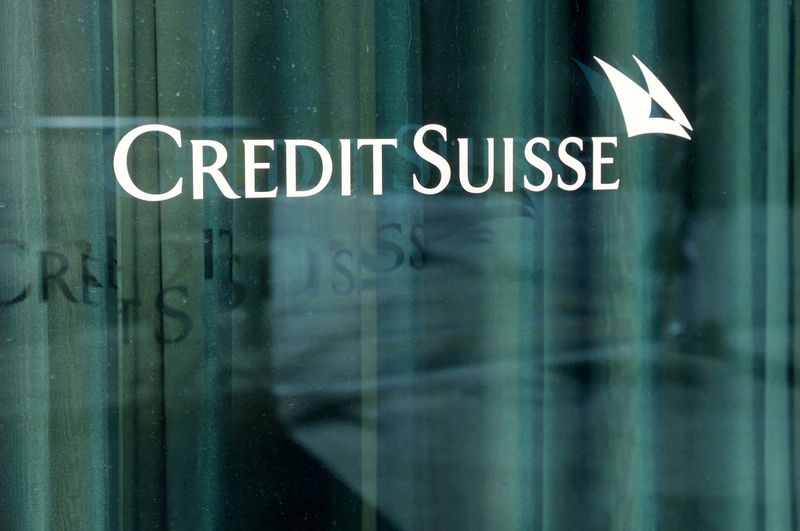By Chiara Elisei
LONDON (Reuters) -Holders of credit insurance linked to Credit Suisse (SIX:CSGN) bonds will not get a payout after a committee that adjudicates on disputes in the derivatives market said on Wednesday the bank's state-engineered merger with UBS was not a credit event.
The Swiss bank in March was taken over by UBS in a state-assisted rescue deal that wiped out Credit Suisse's $17 billion Additional Tier 1 (AT1) bondholders.
"A Governmental Intervention Credit Event had not occurred," the EMEA Credit Derivatives Determination Committee (CDDC) said in a statement on its website, responding to a question from an investor last week.
The CDDC said it had come to the conclusion following an examination of the ranking clauses for the AT1 bonds listed in the request made by the investor.
The investor said the AT1 bonds were pari passu, in other words ranking at the same level, with the reference bond underlying the CDS contracts, which included a subordinated bond that matured in 2020.
But the committee's view was that holders of the 2020 bonds were priority creditors compared with AT1 bondholders.
“Common sense prevailed,” said Jerome Legras, managing partner and head of research at Axiom Alternative Investments. “Effectively, saying that subordinated Tier 2 and AT1 are pari passu would have been very problematic for the AT1 market.”
The amount of gross notional outstanding CDS linked to Credit Suisse bonds stood at more than $19 billion in March, according to data from the Depository Trust & Clearing Corporation. The DTCC provided no details of what seniority of bonds the CDS contracts were written against.
A panel of eleven finance companies, including Barclays (LON:BARC), Citibank, Deutsche Bank (ETR:DBKGn) and Goldman Sachs (NYSE:GS) as well as Elliot Investment Management and PIMCO came to a unanimous decision, the CDDC statement said.
Credit Suisse, which is still listed as a member of the EMEA CDDC on the group's website, was not listed as having taken part in the decision.
TEST CASE
The debate on the CDDC committee was another test case for AT1s, which took a beating in March following the surprise decision by Swiss regulators.
AT1 bonds, introduced after the 2008 financial crisis, act as shock absorbers if a bank's capital levels fall below a certain threshold as they can be converted into equity.
European regulators have said they would continue to impose losses on shareholders first if a bank fails, helping to calm panicky investors. Hong Kong and Singapore also said they would stick to the traditional hierarchy of insolvency claims in which equity investors usually rank below bondholders.
Some investors still hope to recover some of their money if litigation attempts prove successful.
Hundreds of lawsuits have been filed over the terms of the emergency deal to save Credit Suisse.

The 3 billion Swiss franc ($3.35 billion) rescue, hammered out over a March weekend amid turmoil in the global banking sector, upended a long-established practice of giving bondholders priority over shareholders in a debt recovery.
Law firms including Quinn Emanuel Urquhart & Sullivan and Pallas Partners have filed claims on behalf of investors.